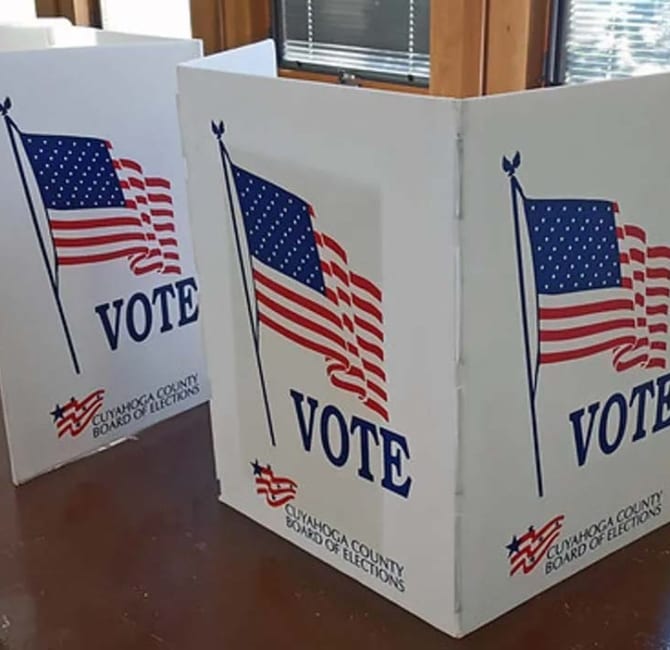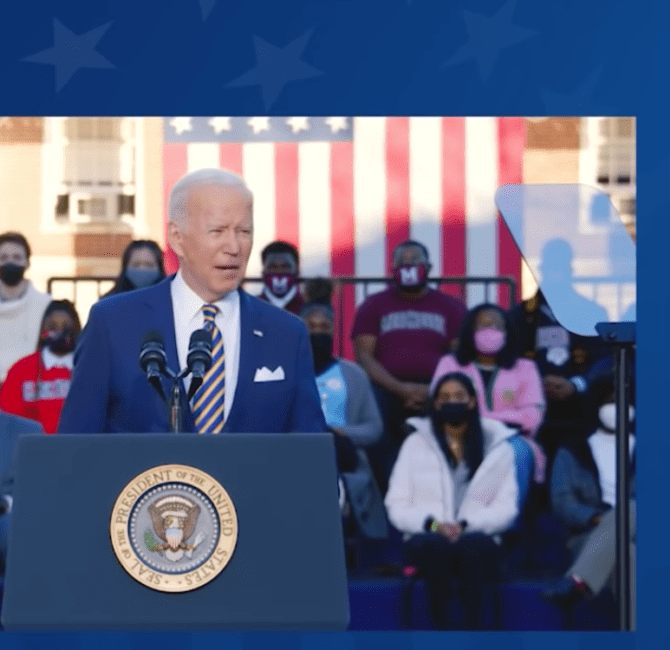House and Senate Dems Differ on Taking on GOP Voter Suppression in Emergency Response to Pandemic

(Photo / Steven Rosenfeld)
The Democrat-led House’s massive pandemic bill seeks to counter years of Republican voter suppression tactics that have shadowed swing states, a contrast to a more circumspect proposal from Senate Democrats who are seeking to expand voting by mail without specifying additional reforms.
Pages 856 to 918 of the House bill produced under Speaker Nancy Pelosi would not just expand early and absentee voting as part of creating emergency voting rules in a natural disaster or pandemic. It would replace many suppressive rules, procedures and technicalities that have emerged in recent years in red-run states with specific steps to encourage participation and make the process easier.
The House reforms include requiring all states to offer early in-person voting at accessible locations, beginning 15 days before an election. The bill removes paperwork requirements—such as affidavits, witness signatures and additional ID—when applying for absentee ballots. The reforms include being able to apply online in any state for an absentee ballot, requiring all states to offer online voter registration, and requiring all states to offer in-person Election Day voter registration.
The House bill also seeks to pull back the curtain around red-state technicalities that have been used to reject absentee ballot applications and ballot envelopes. It requires states to establish standards to verify signatures on envelopes. Absentee ballots would be tracked so voters could follow their progress. Voters would be notified, including by email, if problems arise and given time to resolve them.
The House bill’s proponents include national voting rights advocates who have been litigating red-state policies for years, such as the Brennan Center for Justice at New York University Law School, and seek national election laws and fairer voting procedures.
But the authors of a Senate proposal to expand absentee voting in 2020, Sens. Ron Wyden, D-OR, and Amy Klobuchar, D-MN, seem to recognize the constitutional decree that states will run elections means that Democrats would lose Republican support if the pandemic bill imposed additional specific election reforms.
“It’s either going to be vote-by-mail or nothing if we have to deal with a worst-case scenario,” Wyden said in a March 23 conference call with reporters.
While this difference has yet to be bridged, state election officials are scrambling to bolster voting by mail, starting with 2020’s remaining primaries. Consider this March 24 tweet from Craig Gilbert, Washington bureau chief for the Milwaukee Journal-Sentinel, about Wisconsin’s upcoming presidential primary:
“coronavirus effects: absentee ballot requests now up to 554,116 for WI April 7 election & prez primary. we were at 135,000 8 days ago. never happened before. can WI’s system handle it? can mail partly or mostly ‘replace’ election day voting in this case?”
Wisconsin’s scramble is not unique, according to media reports from other states. However, whether states with recent histories of recent GOP-led voter suppression will be free to impose complicated new absentee ballot rules in 2020, which the House election reform proposal seeks to prevent, remains an open question.
Before the pandemic, Marc Elias, the Democrat Party’s legal point man for voting rights litigation, had already filed two-dozen lawsuits. Their goals were removing potential voting barriers, such as antiquated penalties for helping people to vote absentee (by turning in their ballots), requiring those voters to submit additional paperwork, or an absence of signature matching standards.
The House proposal seeks to address nuts and bolts barriers—such as requiring the government to pay for postage for absentee ballots, barring states from rejecting ballots postmarked before Election Day, or rejecting a ballot due to the size or weight of the paper or envelope used. Such specifics address arcane rules that have become barriers to voting in purple but red-run presidential swing states.
Consider Florida’s recent track record. In 2018, a federal court chastised the state’s rules for processing absentee ballots, including giving voters no chance to correct mistakes that led to their ballots being rejected. Two years earlier, the same judge told Florida officials that they must offer voters a “cure” to address these issues. The House bill’s specifics seek to prevent this pattern from recurring in 2020.
Should election reforms pass in a pandemic bill, it will change the legal landscape for the 2020 election. If the House version prevails, which seems doubtful given uniform Republican resistance, it remains to be seen if red-run states would do what the law requires. Before the pandemic, Democrats sued Kansas because its election officials would not implement legislative reforms in 2020.
And should the Senate proposal prevail, empowering the expansion of absentee balloting without further preconditions, that scenario suggests that there would likely be a different set of legal battles that will unfold in 2020. The tension is between states acting to include or exclude voters, even in a pandemic.
Also Available on: buzzflash.com






